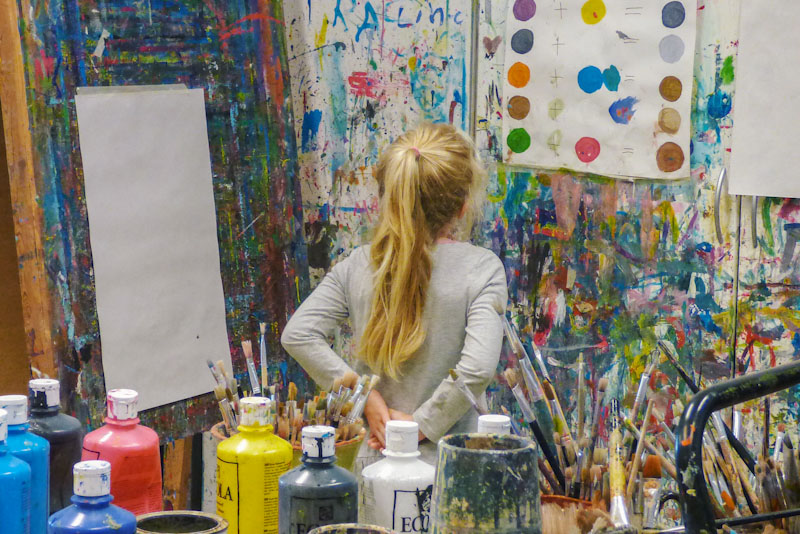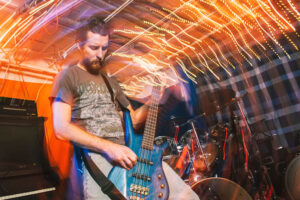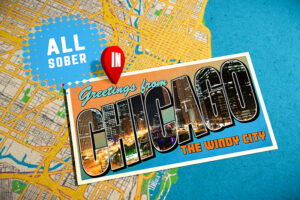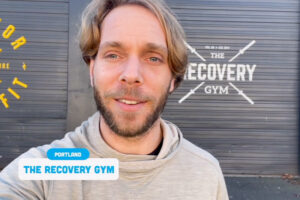Can Creativity Help With Addiction Recovery?
You bet! Forget the old struggling artist cliché — flexing your creativity makes your brain strong, banishes stress, and improves your mental and emotional well-being. It goes a little something like this ...

It’s a common worry among musicians, actors, writers and other creative types entering recovery: Will I lose my spark, my inspiration when I give up my substance? Most quickly discover the opposite. Rock & Roll Hall of Fame guitarist and recovery advocate Ricky Byrd succinctly put the creativity question to bed in a recent interview. “That’s nonsense. I’ve only gotten better at everything I do.”
Not only is it nonsense, there’s actually a strong link between pursuing creative endeavors and success in recovery. After all, creative pursuits nourish the mind, body and soul, and help fill the time that was once spent using substances. Engaging in creative passions and hobbies can be the cornerstone of an effective recovery regimen.
It’s Good for Your Brain!
There is growing evidence that flexing your creativity benefits the brain. Creativity has been linked to increased levels of divergent thinking, higher IQ scores, and improved mental flexibility and problem-solving ability. Creating things has also been shown to reduce stress and anxiety, and improve mood and emotional well-being.
Recent research has even shed light on how creativity affects the brain at the neurological level. Creativity may promote increased activity in the prefrontal cortex, the part of the brain responsible for higher-level thinking and executive function. Creative activity has also been associated with improved connectivity between different brain regions, suggesting that it may help elevate communication between other areas of the brain.
All this evidence suggests that being creative is healthy for the brain in multiple ways: It improves cognitive function, reduces stress levels and enhances neural connectivity. So tapping into your creativity may be an excellent place to start if you’re looking for a way to boost your brainpower, in recovery or in general.
Here’s How Creative Pursuits Help in Recovery, Specifically
Processing Shame
Shame is a very common emotion in recovery. It may be caused by the stigma of addiction, past actions or the feeling of simply not measuring up. Whatever its source, shame can be a powerful and destructive force.
Creative pursuits provide outlets for self-expression and can help boost self-esteem. They can also be a way to process and work through difficult emotions. By exploring creative outlets — from music to journaling — people in recovery can begin to heal the wounds of shame and build a foundation of self-acceptance.
Working Through Trauma
Creativity can act as a support mechanism in psychological recovery from trauma, as it helps people regulate their emotions more effectively. Trauma can cause emotional regulation disruptions, leading to difficulties in managing everyday stressors and coping with significant life events.
Engaging in creative activities can help you learn new ways of regulating your emotions, providing you with tools to manage difficult situations more effectively. Creativity can also provide an outlet for emotions that are difficult to express in words, which can help you process your feelings and work through grief and stress.
Creating a Flow State
Creativity supports recovery by creating a flow state of engagement.
What does that mean? When you are in a flow state, you’re fully engaged in the present moment and wholly absorbed in the immediate task — of shaping a vase, writing a screenplay, whatever it is you do. This state of mind is often associated with inspiration and ingenuity, as it puts you in the zone of focusing all your energy and attention on the project.
This single-minded focus can be highly therapeutic. It’s part of what makes creative pursuits rewarding; the science backs this up. Creativity can be an invaluable tool for promoting healing and growth by allowing folks in recovery to focus on the present and to find joy and meaning in the process.
Fostering a Sense of Play
And another one! Creativity supports recovery by promoting a sense of freedom. As mentioned, when engaged in creative activities, you’re often in a state of presence; your sense of self-consciousness fades away, and you become fully immersed in the activity. Here you can focus on the present moment and let go of troubling thoughts and emotions.
In addition, creativity can help you connect with your inner child and rediscover a sense of playfulness, something easily lost in active addiction. This can be especially valuable for those who have experienced trauma. It can help relieve you from feelings of isolation and despair.
Let’s Do the Thing: How To Get Started
The creative process is often thought of as solitary, but creativity is all around us. It’s the spark of an idea that leads to a new invention, the design of a new building or a masterpiece of art. At the more everyday level, it’s something you can do with sober friends: Hang out with a band, plan a dinner party, play charades.
The process of recovering from substance use disorder is often long and challenging, but giving yourself time to be creative can smooth the path. Whether you’re writing, shooting videos on your phone or simply getting your imagination on out in the woods, creativity can boost mood, reduce stress and promote healing. The first step to being creative is to start, whether that means reviving an old hobby or trying out a new one.
Pick up a paintbrush, pick up a pen, pick up a camera, a toolbox, a cookbook, a banjo — there’s no need to overthink this one.
More Lifestyle
The Definitive Guide to Sober Travel
Vacations shouldn't be nerve-racking, but in recovery, it's not always that simple. We asked three sober travel pros how to make your trips fun — and more fulfilling than ever.
Sure-Bet Sober Date Ideas
Ready to get back out there? Sober dating isn't so hard. But here are a few pointers anyway, to help you find your groove.
Sobriety Roundtable: What's Your Favorite Sober Activity?
From roller derby to CrossFit and dog fostering to splurging on Mexican, nine sober folks shared what they do for fun and fulfillment. Get some ideas for your own Dry January or longer-term sobriety!
The Joy of Baking (Sober)
Two months sober, Annie Zimmerman decided to make cookies. Now, her hobby turned passion yields fulfillment, connection and delicious soberversary cakes. Read the interview!
Now Elite NFL Players, They First Tackled Addiction | News Roundup
All Sober compiles the best of the latest headlines. Here's your addiction and recovery news for the week of Feb. 19, 2024!
All Sober in Chicago
A great town for recovery, come sun, rain or snow! Check out our video guide to the Windy City's best sober options for bars, bottle shops — and even an arcade with vintage games.
All Sober in New York
The Big Apple truly has it all — including a sober bar with a "witchy vibe" and an array of enchanting non-alc cocktails. Take a peek in our video guide to the sober city!
All Sober in Portland
Oregon's cultural capital may be weird and proud, but it's sober and proud too! We scoped out the coolest sober-friendly spots in our new video guide.










